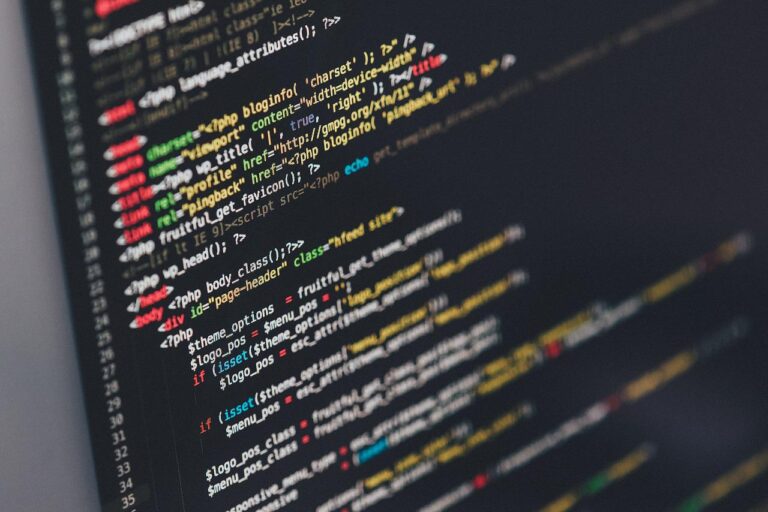Ethical Hacking Demystified: Your Step-by-Step Guide to a Lucrative Career
“Cybersecurity is a cat-and-mouse game, and to win, we must think like the mouse,” advises Kevin Mitnick, a pioneer in the field.
The latest numbers show an increase in cyber dangers. A cyberattack occurs every 30 seconds, according to new research. Surprisingly, 95% of these instances are the result of human error. Cyberattacks are expected to cost $10.5 trillion each year by 2025. This is a 300 percent increase above 2015 levels. Organisations throughout the globe spent over $150 billion on cybersecurity in 2021 to defend against the attack, and this figure is expanding at a rate of 12.4 percent each year.
Every day, an estimated 35,000 websites worldwide are targeted by hackers. Notably, small firms bore the brunt of these assaults, accounting for 43% of all incidents.
Looking ahead, projections by Norton paint a worrisome picture. they assert that cyberattacks pose a greater risk to F-35 jets than traditional missile threats. Astonishingly, more than 75% of targeted cyber assaults originate from seemingly benign emails.
Ethical hacking is an essential component of cybersecurity. It entails identifying vulnerabilities and improving network security. This proactive strategy provides a strong defence against an ever-expanding array of cyber threats. Before digging deeper into this topic, let me offer a quick summary of hacking to make sure we’re all on the same page.
What is Hacking ?
As an IT professional and content writer, I perceive hacking as akin to the craft of a digital locksmith. Much like a master locksmith, I, as a world-class hacker, don’t just grasp the intricate realm of computer systems, networks, and software – I master it. I don’t merely observe weak points passively – I actively probe, pinpoint, and exploit them. My toolkit includes a range of techniques like SQL injections, cross-site scripting, and buffer overflows.
In 2012, LinkedIn faced a significant hacking incident. The hackers identified a vulnerability in LinkedIn’s security, particularly in its password hashing mechanism.
Hashing is the method I use to fortify passwords. It involves converting them into a string of characters known as a hash. When executed correctly, it becomes nearly impossible to reverse-engineer the original password from the hash. However, LinkedIn was using an outdated hashing function, SHA-1, without incorporating “salting” into the hashes – a process that adds an extra layer of security.
Exploiting this weakness, I successfully cracked the hashes, exposing the original passwords of millions of LinkedIn users. Subsequently, this information was traded on the dark web, leading to further instances of unauthorized access and identity theft.
This incident underscores my belief in the critical importance of robust security measures and highlights the indispensable role of ethical hackers. Just as a locksmith can identify feeble locks to enhance security, I, as an ethical hacker, pinpoint and rectify vulnerabilities in digital security, thereby preventing such breaches.
WHAT IS ETHICAL HACKING ?
Being an Internet security expert and content writer, I understand Ethical Hacking as a crucial strategy in safeguarding computer systems and networks from potential threats. As an ethical hacker, I fall under the category of “good” or white hat hackers, often employed by companies to assess their systems and unearth security vulnerabilities.
Drawing a parallel to a home, think of it having doors and windows, potential entry points for intruders. Similarly, a computer possesses vulnerabilities, which serve as entry points for potential cyber threats. My role as an ethical hacker is to identify and subsequently address these vulnerabilities, ensuring the computer’s safety.
To begin, I perform a comprehensive evaluation of the network or system, looking for any weak areas. This method may include scanning for open ports, inspecting software programmes for vulnerabilities, and even attempting to exploit known flaws. When I detect a vulnerability, I acquire and analyse relevant information about it. This enables me to determine how the vulnerability may be exploited and, more importantly, how it can be fixed. Following that, I submit my results to the organisation, giving them the knowledge they need to address the discovered vulnerability. Ethical hacking courses are highly recommended for anyone seeking a full grasp.

Suggest to Read- Unlocking the Future: Your Guide to Becoming an AI Engineer in 2023
Ethical Hacking: A Critical Shield for Modern Businesses-
I recognize the pivotal role of Ethical Hacking in bolstering cybersecurity for businesses. It entails the identification and rectification of vulnerabilities within computer systems, networks, and applications. Ethical hackers, also known as white-hat hackers, are accredited professionals who simulate cyberattacks on behalf of organizations. This aids in evaluating and enhancing the company’s security measures.
Consider the scenarios where ethical hacking could have significantly benefited a business:
- Mitigating Data Breach Consequences: A notable instance is the Capital One breach, where a former Amazon employee leveraged her hacking expertise to pilfer data from over 100 million individuals. This incident incurred a staggering cost of $190 million in settlements, alongside an $80 million fine for Capital One. Ethical hackers could have preemptively thwarted this costly breach.
- Countering Fabricated Evidence: In India, hackers surreptitiously planted falsified incriminating files on the computers of activists, resulting in their unwarranted arrest. Ethical hackers play a crucial role in detecting and neutralizing such malicious activities, thereby safeguarding innocent individuals.
- Safeguarding Against Cryptocurrency Theft: Notably, the Lazarus Group, affiliated with North Korea, targeted cryptocurrency companies and cybersecurity researchers, making off with several million dollars’ worth of digital currency. Ethical hackers are instrumental in fortifying the security of these valuable digital assets.
- Combatting Social Engineering Attacks: The Lazarus Group also exploited social engineering tactics to compromise developer accounts across various industries. Ethical hackers can impart valuable education to employees, equipping them to recognize and thwart such tactics, thereby diminishing the likelihood of successful attacks.
- SolarWinds Cyberattack (2020): This attack compromised numerous government agencies and major corporations by exploiting vulnerabilities in the SolarWinds software. Ethical hacking could have potentially discovered and addressed these vulnerabilities before they were exploited.
- Colonial Pipeline Ransomware Attack (2021): A cybercriminal group, DarkSide, attacked Colonial Pipeline, disrupting fuel supplies along the U.S. East Coast. Ethical hacking measures could have identified and mitigated vulnerabilities, potentially preventing this significant disruption.
- Microsoft Exchange Server Vulnerabilities (2021): These vulnerabilities were exploited by cybercriminals to gain unauthorized access to email servers. Ethical hacking could have proactively identified and patched these vulnerabilities, preventing unauthorized access.
- JBS Cyberattack (2021): JBS, one of the world’s largest meat processors, fell victim to a ransomware attack. Ethical hacking could have potentially identified and addressed weaknesses in their cybersecurity infrastructure, potentially thwarting the attack.
- Kaseya Supply Chain Attack (2021): A ransomware attack on Kaseya, a software provider, affected thousands of its customers through a compromised software update. Ethical hacking measures could have been employed to scrutinize software updates for potential vulnerabilities.
- Accellion Data Breach (2021): The cyberattack on Accellion’s file transfer service led to data breaches for numerous organizations. Ethical hacking could have been employed to identify and rectify security flaws in the service.
These examples underscore the critical role of ethical hacking in identifying and mitigating potential security threats for businesses, especially in the face of rapidly evolving cyber threats
CERTIFIED ETHICAL HACKING COURSES-
Difference Between Ethical Hacking & Malicious Hacking-
| ASPECT | ETHICAL HACKING | MALICIOUS HACKING |
| Intent | Performed with good intentions to improve cybersecurity. | Performed with malicious intent to cause harm or gain. |
| Authorization | Conducted with explicit consent from the target organization. | Unauthorized, without the knowledge or consent of targets. |
| Legality | Legal and follows ethical guidelines and regulations. | Illegal and violates laws related to computer systems. |
| Purpose | Identifying vulnerabilities to strengthen security. | Exploiting vulnerabilities to steal data or disrupt systems. |
| Reporting | Findings are responsibly disclosed to the organization. | Activities are concealed, and victims are usually unaware. |
| Beneficiary | Benefits the organization by enhancing cybersecurity. | Benefits the attacker with stolen data or financial gains. |
| Impact | Minimizes potential risks and protects against real threats. | Inflicts damage, financial losses, and breaches of privacy. |
| Motivation | Driven by a sense of responsibility and ethical principles | Driven by personal gain, revenge, or destructive motives. |
| Tools & Technique | Uses hacking tools to identify and fix vulnerabilities. | Uses similar hacking tools but for malicious purposes. |
Mastering Ethical Hacking: Your Step-by-Step Guide to Success
- Get an education in IT, computer science, or related fields for a solid foundation.
- Excel in programming languages like Python, C, or JavaScript to grasp scripts and code.
- Dive deep into networking, including TCP/IP, firewalls, and protocols.
- Navigate both Windows and Linux systems with ease, including command-line interfaces.
- Grasp cybersecurity basics, vulnerabilities, and protective measures.
- Earn certifications like CEH, OSCP, Security+, and CISSP for structured learning and validation.
- Utilize essential security tools such as Wireshark, Nmap, Metasploit, and Burp Suite.
- Hone skills in real-world scenarios with Capture The Flag (CTF) challenges.
- Understand reverse engineering to delve into internal workings of software and malware.”

- Penetration Tester (Pen Tester): Pen testers are ethical hackers who actively simulate cyberattacks on systems, networks, and applications to identify vulnerabilities and weaknesses. They provide detailed reports to organizations on how to improve security.
- Security Analyst: Security analysts monitor an organization’s IT infrastructure for potential security breaches. They investigate incidents, implement security measures, and ensure compliance with cybersecurity policies and regulations.
- Security Consultant: Security consultants work independently or for cybersecurity firms, advising organizations on security strategies, risk assessments, and best practices. They assess an organization’s security posture and recommend improvements.
- Vulnerability Assessor: Vulnerability assessors specialize in identifying and assessing security vulnerabilities in digital systems. They use various tools and methodologies to discover weaknesses and help organizations mitigate risks.
- Incident Responder: Incident responders are responsible for investigating and responding to security incidents such as data breaches and cyberattacks. They help contain threats, recover compromised data, and improve incident response protocols.
- Security Architect: Security architects design and implement security solutions for organizations. They develop security policies, select security technologies, and create secure system architectures to protect against threats.
- Security Researcher: Security researchers focus on discovering new vulnerabilities and threats. They often work for cybersecurity companies, identifying emerging risks and developing solutions to address them.
- Chief Information Security Officer (CISO): CISOs are top-level executives responsible for an organization’s overall cybersecurity strategy. They oversee security teams, manage budgets, and ensure compliance with security standards.
- Security Trainer/Educator: Security trainers educate individuals and organizations about cybersecurity best practices, ethical hacking techniques, and threat mitigation. They may work as educators, consultants, or trainers for cybersecurity training programs.
- Security Administrator: Security administrators are responsible for configuring and managing security tools, firewalls, and intrusion detection systems. They help maintain the security infrastructure of an organization.
- Forensic Analyst: Forensic analysts investigate cybercrimes and security incidents. They collect and analyze digital evidence to identify perpetrators and support legal actions.
- Security Auditor: Security auditors assess an organization’s compliance with security policies, industry regulations, and standards. They conduct audits and provide recommendations for improving security controls.
These roles are just a sample of the diverse opportunities within the ethical hacking and cybersecurity field. As cyber threats continue to evolve, the demand for skilled professionals in these roles is expected to grow, making it an exciting and rewarding career path.
- Conclusion- Cybercriminals have been fast to adopt disruptive technology, especially in generative AI chat platforms such as ChatGPT4, Google Bard, and others. These systems may produce phishing emails that seem real, imitate respectable websites, and even develop viruses. Organisations must be aware of the possible hazards posed by these platforms and take protective measures. Ethical hacking can be an invaluable tool in this regard.
FAQS WITH ANSWERS-
Q. 1-Is ethical hacking legal?
Yes, ethical hacking is completely legal. It is performed with explicit consent from organizations to identify vulnerabilities and strengthen digital security.
Q. 2-What is the role of cybersecurity in ethical hacking?
Cybersecurity and ethical hacking go hand in hand. Ethical hacking is a proactive approach to cybersecurity. It involves identifying and fixing vulnerabilities to safeguard digital systems and networks.
Q. 3-What is the average salary of an ethical hacker?
The salary of an ethical hacker varies depending on factors like experience, location, and certifications. On average, ethical hackers can earn a competitive salary, often well above the average in the IT field.
Q. 4-Do ethical hackers engage in illegal activities?
No, ethical hackers strictly operate within legal and ethical boundaries. They have explicit authorization to identify vulnerabilities and improve cybersecurity for organizations.
Q. 5-How do ethical hackers identify vulnerabilities?
Ethical hackers use a variety of tools and techniques to identify vulnerabilities. They conduct thorough assessments, perform penetration testing, and employ hacking methodologies to uncover weak points in digital systems.
Q. 6-Is ethical hacking only relevant for large corporations?
No, ethical hacking is important for organizations of all sizes. Small businesses and startups are just as vulnerable to cyber threats. Ethical hacking helps identify and mitigate risks, regardless of the company’s size.
Q. 7-Can ethical hacking guarantee absolute security?
While ethical hacking significantly enhances digital security, it cannot provide absolute guarantee against all cyber threats. It is an ongoing process, and organizations should continually update their defenses to stay ahead of evolving threats.
Q. 8-What qualifications and skills are important for a career in ethical hacking?
A strong foundation in computer science, programming languages (such as Python, C++, and Java), and networking is essential. Additionally, certifications like Certified Ethical Hacker (CEH), CompTIA Security+, and Offensive Security Certified Professional (OSCP) can greatly enhance your credentials.
Q.9-What job opportunities are available for ethical hackers?
Ethical hackers can pursue various roles, including penetration tester, security analyst, security consultant, and vulnerability assessor. They are in high demand across industries, including IT, finance, healthcare, and government agencies.
Q.10-How does a career in ethical hacking contribute to cybersecurity?
Ethical hackers play a critical role in strengthening cybersecurity. They proactively identify vulnerabilities and weak points in systems, networks, and applications, helping organizations fix these issues before malicious hackers can exploit them. This helps prevent security breaches and protects sensitive information from falling into the wrong hands.
Remember, a career in ethical hacking requires continuous learning and staying updated with the latest trends and technologies in cybersecurity.








One Comment